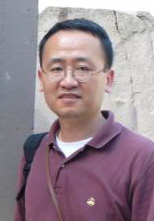
“Who is your favorite novelist?” If asked, I would answer without a moment of hesitation, “Tolstoy.” I love all of Tolstoy’s novels, even including Resurrection, which many criticized for its overly didactic tone. Besides his three major novels (Anna Karenina, War and Peace, and Resurrection), I also read his novellas such as Death of Ivan Ilych, as well as his parables, all of which I enjoyed thoroughly. My love of Tolstoy, however, began relatively late and somewhat accidentally in my life.
It was Fall 1998, when I was 28 and a second-year Master’s student at Yonsei, that I ventured to audit an introductory literature course for undergraduate freshmen entitled “What Is Literature?” offered by professor Yoo Jong-ho, a former English professor at Ewha and a renowned literary critic. In one lecture, he casually asked the audience.“Do you guys want to improve your English?”
Hearing a unanimous “yes,” professor Yoo suggested that we read Russian literature, in English translation. Precisely because they are translated into a foreign language, he reasoned, prose in those novels abides by all grammatical rules, thus making it much easier to understand than that written by native speakers.
“Although they are translated,” Yoo continued to say, “it is absolutely possible for us to relish their original literary charm. So by reading 19th century Russian literature, we can improve our English reading skill.”
I took his suggestion seriously and put them into practice, and chose Tolstoy’s Anna Karenina as my first challenge.
“All happy families are alike; each unhappy family is unhappy in its own way.” I got hooked instantaneously when I had just finished reading this very famous first sentence. To save time for my study and research, I read the novel only on my commute to school. It took nearly three months for me to finish about 700 page long Anna Karenina, but the fact that I was able to finish such massive novel in English gave me a tremendous sense of achievement and pride. More importantly, I was deeply moved by the novel itself and fell in love with Tolstoy. While reading Tolstoy, I laughed and cried with the characters, but never failed to be touched by his “seemingly effortless artistry” and his profound understanding of human psychology.
Besides Tolstoy, I enjoyed Dostoyevsky as well. Beginning with The Brothers Karamazov, I continued to read all of his major novels such as Crime and Punishment, all in English. On the last page of my copy of The Brothers Karamazov, I wrote “Finished reading at 10:48 p.m. April 15, 1999. No sooner had I finished reading this novel and signed on its last page than the subway started moving out of Konkuk University station. I clenched my teeth, while reading the last several pages, to refrain from crying. Dostoyevsky does not hesitate to describe the baseness and cruelty of human beings, and the crude bestiality of wounded souls. But that does not mean he does not believe in the sublime goodness of human hearts.”
What does my note mean? Well, I don’t know either. What I still remember are the moments of joy and the sense of spiritual rehabilitation while reading Tolstoy and Dostoyevsky. In retrospect, there is no doubt that my love for Russian literature was accidental, but I am so happy that I got to know the beautiful world.
Professor Lee Suk-hee is a professor of the Department of History. He received his master’s degree in Yonsei University and his Ph.D. in Harvard University.

